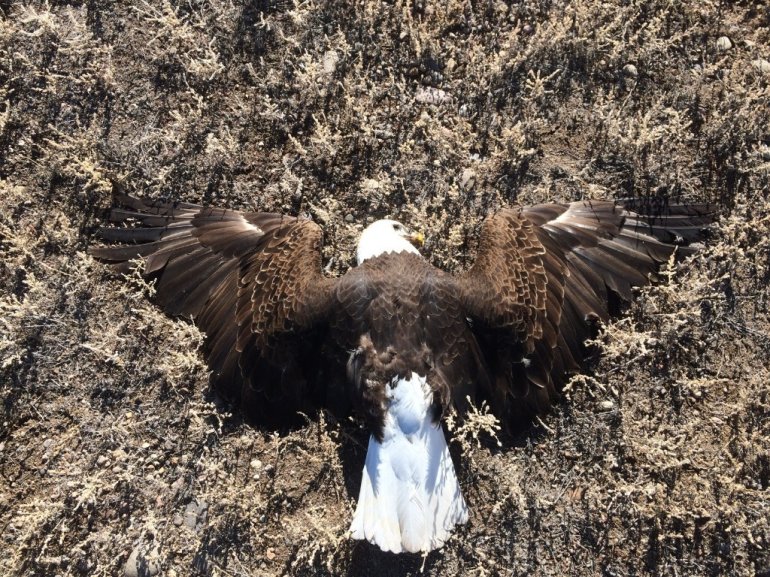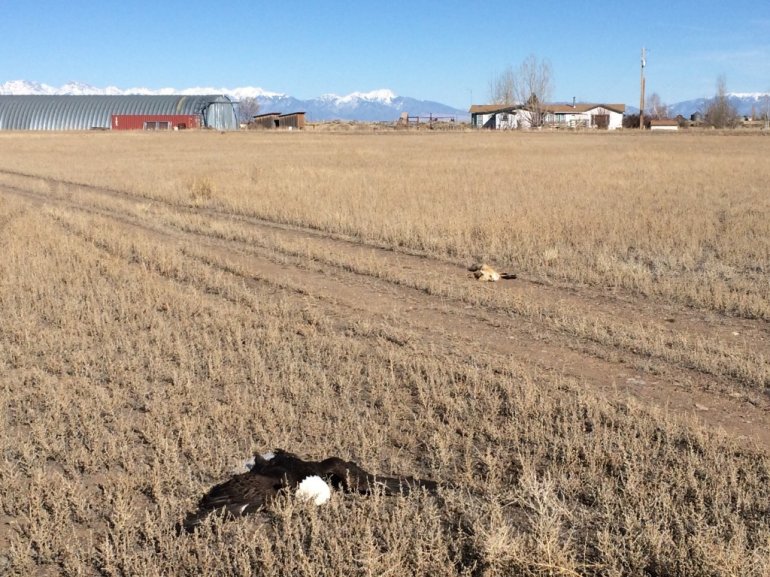MONTE VISTA, Colo. — A Rio Grande County man pleaded guilty to poisoning bald eagles and other animals, Colorado Parks and Wildlife said Friday. The conviction followed an investigation by the agency.
John L. Divine, 77, pleaded guilty to 10 misdemeanors of illegal take of wildlife and using poisons to kill wildlife, according to CPW. Divine paid more than $8,000 in fines in April.
Divine told CPW officers he put out the poison because coyotes were killing his sheep.

“His actions caused the death of multiple species of wildlife, including five bald eagles, a coyote, a fox, magpies, crows and ravens,” said CPW Wildlife Officer Jeremy Gallegos. “Putting out poison is dangerous and can be deadly for wildlife, domestic animals and people.”
The investigation started in January 2017, when Gallegos got a call from a man reporting he had found parts of a domestic sheep that appeared to be covered in poison in a Saguache County culvert. The caller also found several dead magpies nearby. Gallegos responded and found the sheep covered in a thick yellow liquid.
Gallegos came back the following day and found more pieces of sheep. He also noticed tire tracks and decided to set up a game camera to monitor the area.
Gallegos returned again the day after setting up the camera and retrieved footage showing a man who would later be identified as Divine putting a poisoned sheep’s liver in the area.
Later that month, wildlife officers contacted Divine, a local rancher.
“Divine said he was trying to stop the coyotes and that he’d put anti-freeze on the sheep. He also said he’d only baited one spot and then he led the officers there. But it was not the same location that Gallegos had initially investigated,” CPW said.
Divine eventually admitted to baiting the other location and was issued a ticket.
In February, a different wildlife officer found a sick bald eagle and several dead bald eagles about a mile from one of the bait sites. The officer also found the carcasses of a coyote and red fox.

The injured bald eagle was taken to a CPW facility and nursed back to health before being released back into the wild in late March.
By the end of March, a total of five dead bald eagles had been found in the area.
The dead animals were taken to labs on the Front Range, where it was determined that they ingested not antifreeze but Furadan, a banned pesticide used to control insects.
“The evidence clearly showed that all these animals were killed by the pesticide put out by Mr. Divine,” Gallegos said.
Gallegos continued to gather evidence during the summer of 2017 and attempted to meet with Divine, but he refused and hired an attorney.
“After receiving test results on the cause of death and not finding any more dead eagles, Gallegos met with Divine’s attorney and served the citation with the new charges in late November 2017. Divine admitted guilt and eventually paid the fine,” CPW said.
CPW thanked area landowners for contacting the agency upon finding animal carcasses.
“Without these individuals taking that step to notify us, we probably would have never known fully why the bald eagles were disappearing in the area, and there wouldn’t have been any accountability for the individual responsible,” Gallegos said in a press release issued Friday. “It goes to show that we all can be a voice for wildlife.”
Citing the U.S. Fish and Wildlife Service, CPW said poisoning is one of the five most common forms of bald eagle mortalities nationwide.
